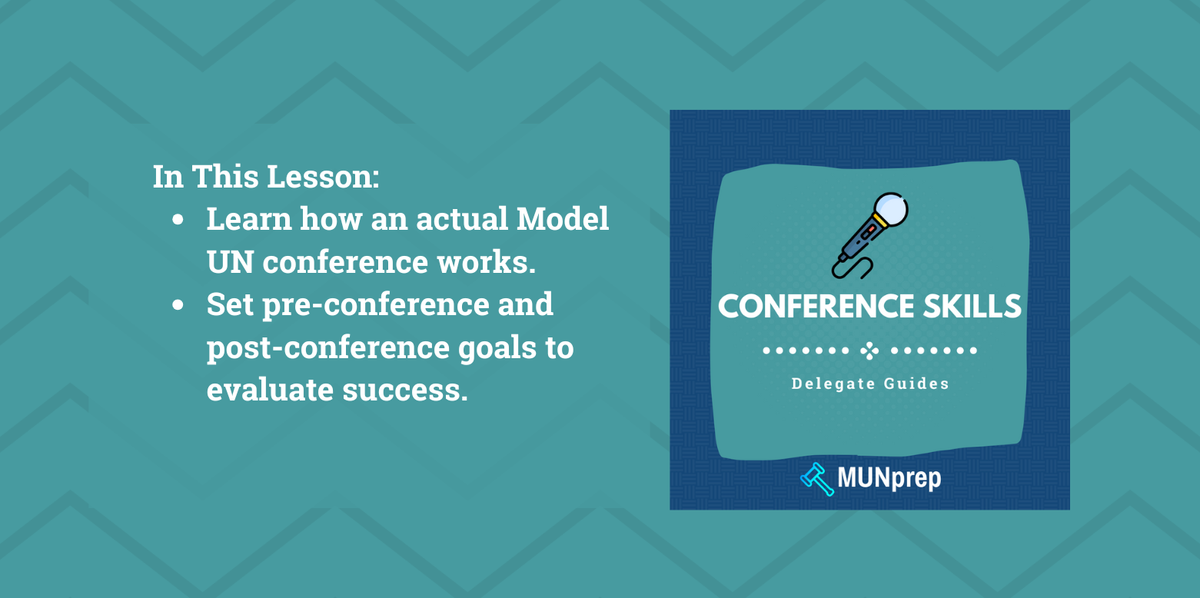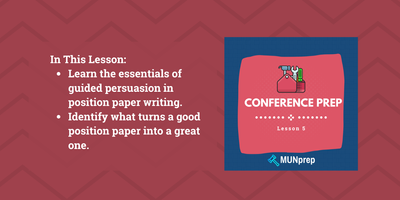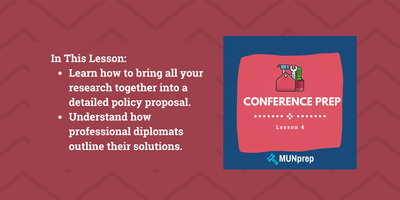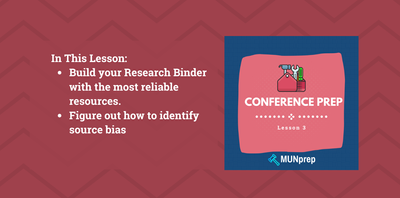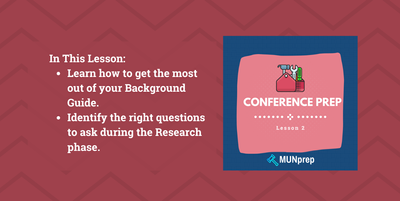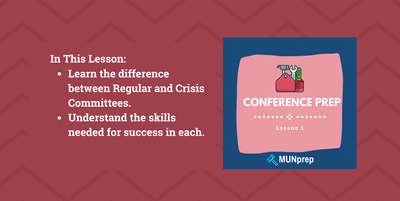Writing the Perfect MUN Opening Speech
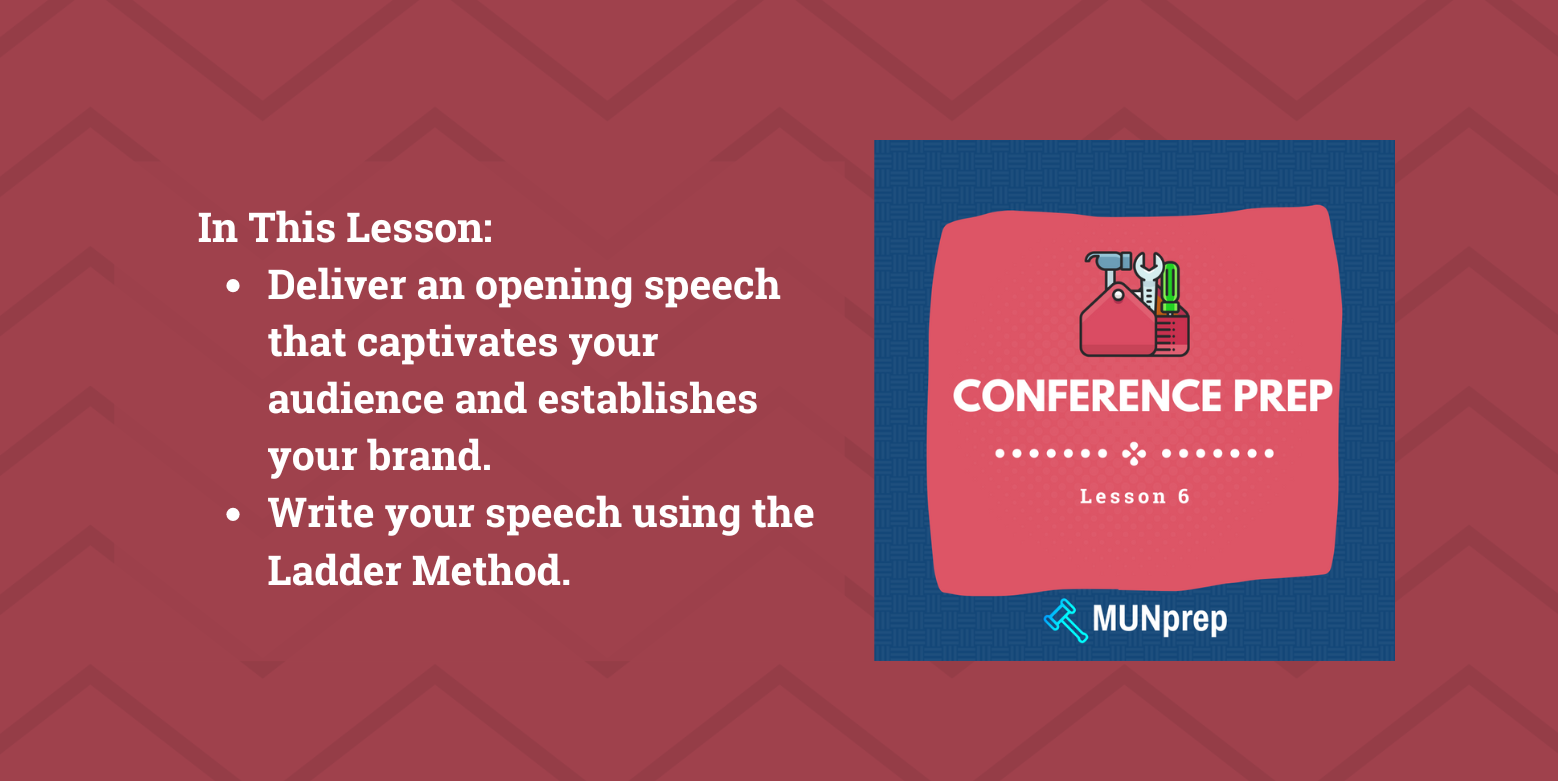
Fellow MUNprep delegates,
Every single day, hundreds of delegates walk in to their first committee session and have no idea what to say. They’re scared, speechless and feel out of place – they start to doubt themselves and worry they may never pass a resolution after weeks of hard work.
The reason? They didn’t take the time to prepare an opening speech!
But don't worry - we're here to help. We'll walk you through a few examples of a great opening speech and show you how to make your own.
The Opening Speech
The Opening speech is the most important speech you can make - it is the only one you can really control and gives you the chance to lay a strong foundation for the rest of your conference.
At its core, an opening speech gives you the chance to highlight your core policy objectives in a 30-90 second address (only 75-250 words!).
Today, we're only focusing on opening speeches - the type of speech you will make on a GSL or speakers list.
If your looking to improve your speeches on the fly during a moderated caucus, check out our speech guide here where we teach yo the POP formula!
The Goal of Your Opening Speech
The main point of your opening speech is to outline your solutions, and get other delegates excited to work with you. After, you can build a bloc and develop a resolution as a team. You know you've written a great opening speech if the notes from other delegates start flowing in!
Let's look at a few opening speech samples.
Opening Speech Samples
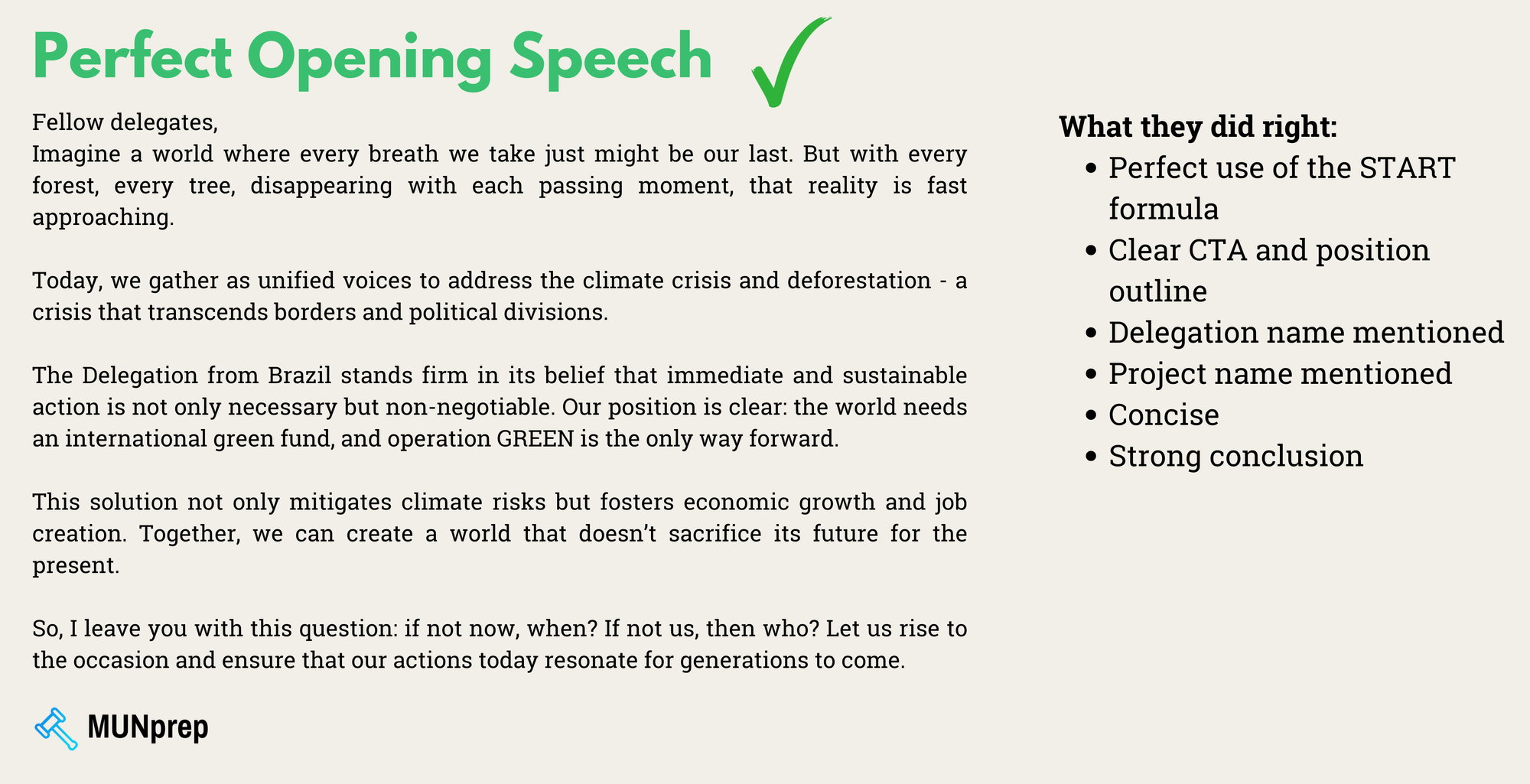
In this speech it is clear that the delegate knows what they are talking about and have clearly outlined their approach using the START formula.
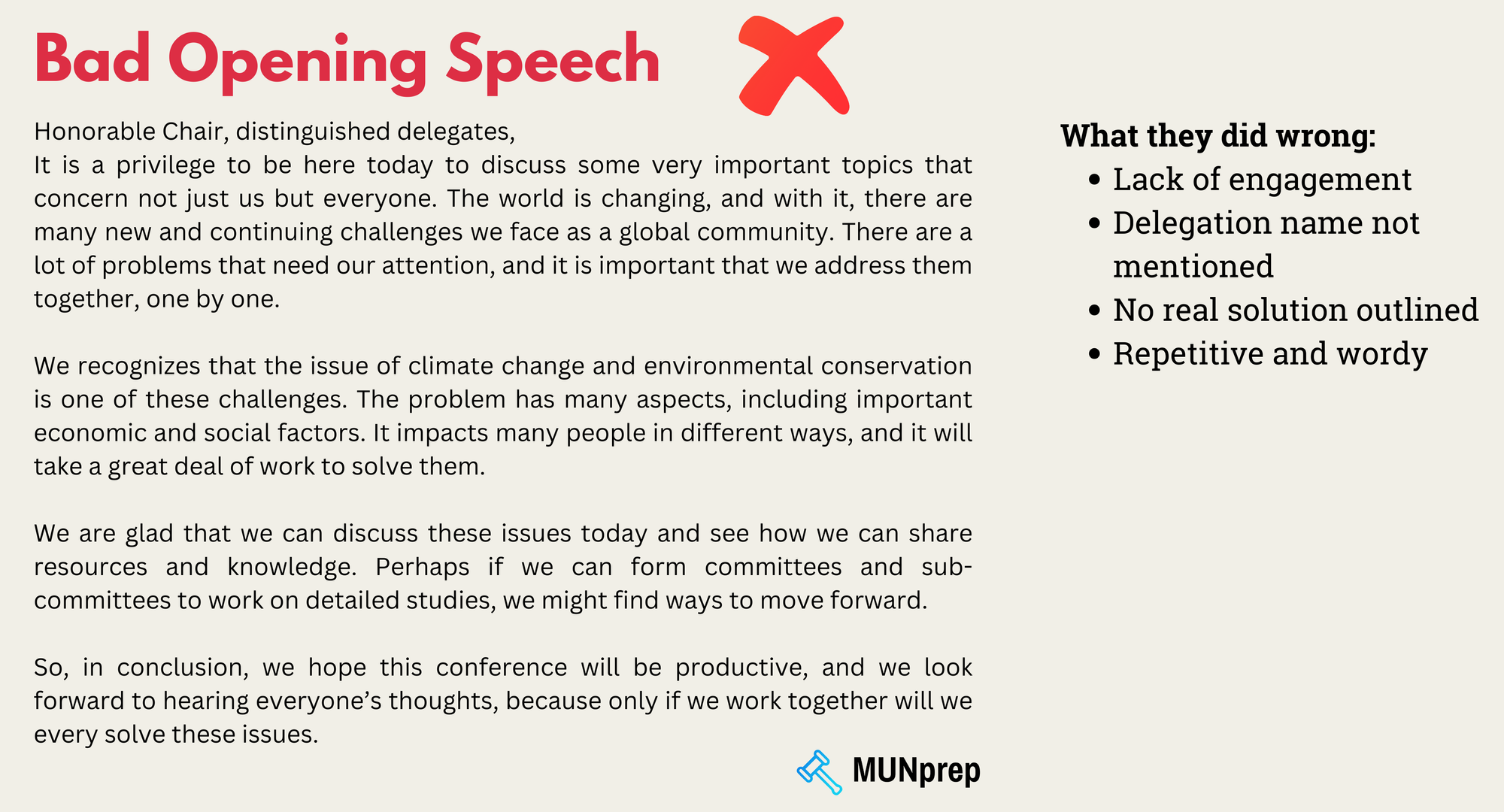
This is the type of speech that makes people fall asleep - it says nothing and goes nowhere. They also forgot to mention their delegation name so even if someone wanted to work with them, they wouldn't be able to send you a note.
So how can you avoid making your own rambly speech?
What makes a great speech?
There are 4 key aspects to any great speech, your opening speech should have all of these ingredients as well:
In this lesson, we will teach you how to include all of these ingredients to your next opening speech, lets get started!
1- Clear Purpose
The purpose of an opening speech is to set the tone for the conference, introduce the country or position’s stance on the given topics, and establish credibility.
It should provide a concise overview of the key points the delegate will address during the conference, demonstrate knowledge of the topic and the country's perspective, and outline any proposed solutions or strategies.
There are a few ways you can make sure that your opening speech has a clear purpose.
- Understand the Conference Theme: You can find this by reading your background guide.
- Identify Your Delegation Objective: Next, identify the key issues and objectives relevant to your assigned country or role. Consider your priorities, interests, and positions within the broader scope of the conference topics.
- Define Your Message: Once you have a clear understanding of the conference theme and your delegation objective, define the message you want to convey in your opening speech.
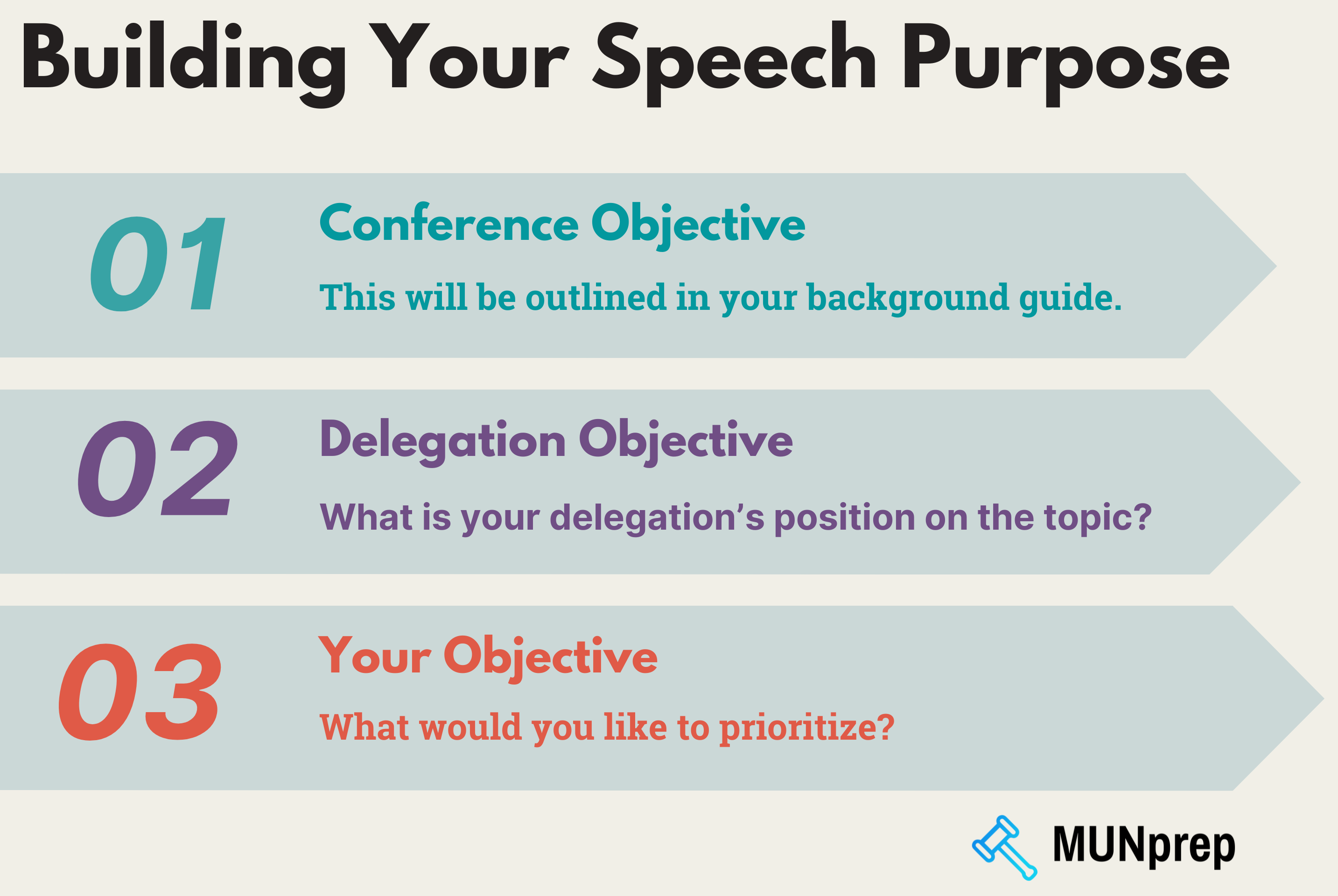

Establishing your brand
The opening speech represents the perfect opportunity to set up your brand - Great branding starts when you first turn your ideas into policy proposals.
- Is there a particular idea that you want to be known for?
- Do you believe that a certain aspect of the topic requires more focus?
- Is your state especially focused on a certain aspect of the topic?
2- Compelling Content
A speech with persuasive content can effectively convey the country's perspective and contribute to meaningful debates during the conference. A speech with good content will always stand out more than one that is just all fluff.
There are a few important aspects to a speech with good content, this includes:
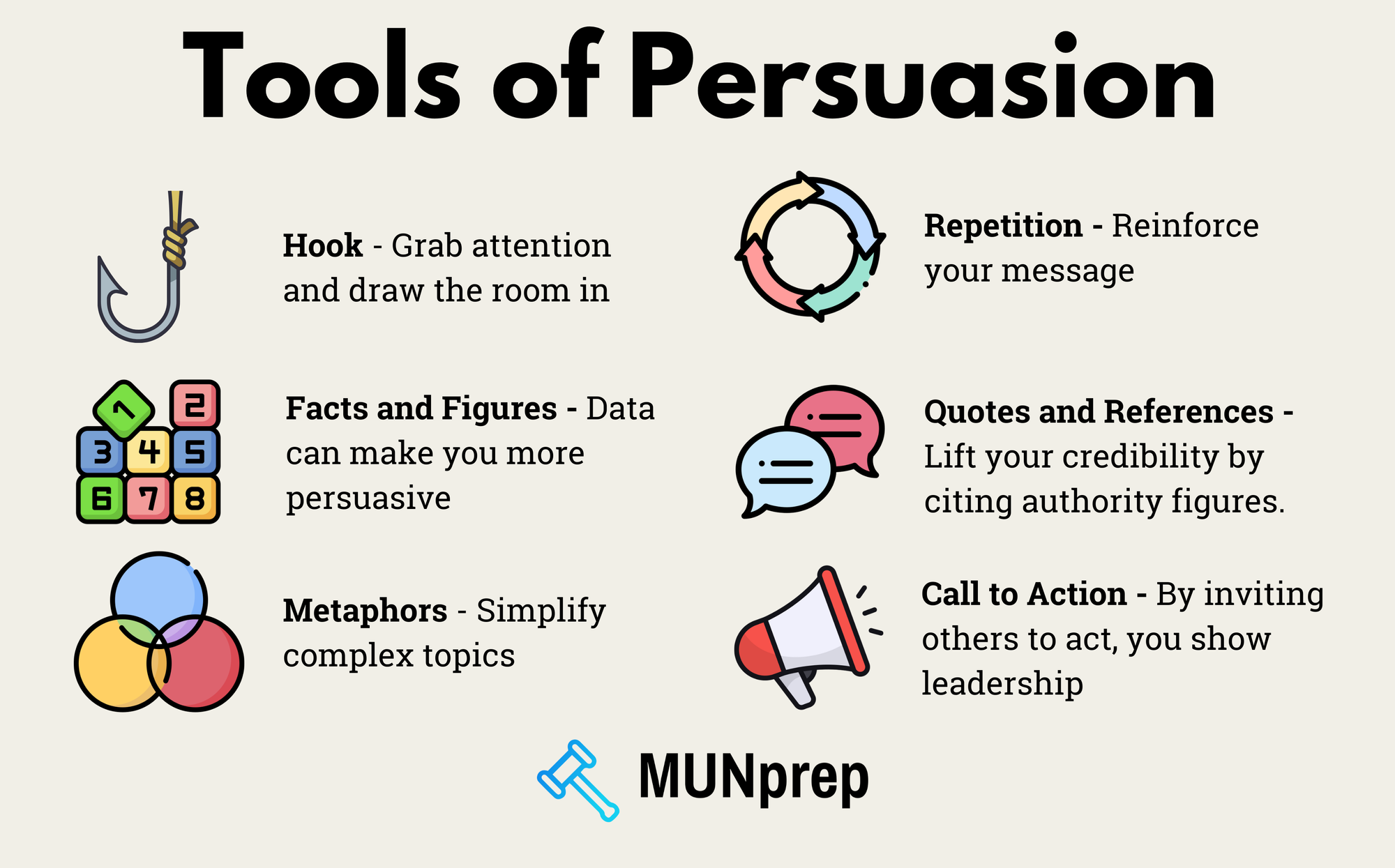
Using these language devices can help to make your speech much more memorable:
"According to the United Nations High Commissioner for Refugees, there are over 70 million displaced people worldwide. This is the highest number since World War II. These individuals are not just statistics; they are people with hopes, dreams, and the right to live in dignity and safety."
Consider the success of the Scandinavian countries in achieving near-zero waste. Sweden, for instance, recycles almost 99% of its household waste. This highlights that with the right policies and societal commitment, it is possible to make significant strides toward sustainability and environmental conservation.
“In the words of former UN Secretary-General Ban Ki-moon, 'Saving our planet, lifting people out of poverty, advancing economic growth… these are one and the same fight. We must connect the dots between climate change, water scarcity, energy shortages, global health, food security, and women’s empowerment. Solutions to one problem must be solutions for all.'”
"To effectively address climate change, we must focus on three key areas: reducing carbon emissions, investing in renewable energy, and promoting global cooperation. By tackling these three aspects, we can create a sustainable future for generations to come."
3- Effective Structure - The START Formula
Like any good story, your opening speech needs a beginning, middle and end. You should draw your listener in at the start, hit them with the key points and give them something to remember at the very end.
A strong START with your Opening Speech
You should always remember that a great opening speech will help you have a great START to your next Conference!
For your next opening speech, try out the following recipe:
- Strong Attention Grabber – Pull your audience in with a thought-provoking question, anecdote or fact. 1-2 sentences
- Topic Introduction – Highlight the importance of the topic, preferably linking with your future solutions. 1-2 sentences
- Assert Your Position – State your country’s position on the topic, express your priorities and set a foundation. 1-2 sentences
- Recommendation – Outline your approach and how it solves the problem, and how it can work with other delegates. As much space as you can afford.
- Tie it Together – Summarize your main point, close with something encouraging OR express the potential consequences if a resolution is not found. 1-2 sentences.

4- Engaging Delivery
Once you’ve written up your opening speech, try it out a few times, give yourself an idea for the timing and make sure that you emphasize whats important. Delivery plays a crucial role in the effectiveness of a speech. A great speaker uses voice modulation, body language, eye contact, and gestures to engage the audience and convey sincerity, confidence, and passion.
- Try and pick out 3 or 4 key points and statistics from your speech - circle them and practise the set up for these points in your speech. Anybody in a committee will only remember a few things, so work on setting up the key aspects of your speech.
- Practise with teammates - This helps to get comfortable speaking with an audience. You can also learn from how your teammates make their speeches and incorporate some skills into your own scripts.
- Be Authentic and Passionate - Show that you genuinely care about your topic and your audience. Your enthusiasm will be contagious and will help to engage and inspire those listening.
- Think about your gestures – since you have a chance to prepare your speech, you also have an opportunity to talk to yourself in front of a mirror and see what it all looks like. Some people’s hands wave all over the place when making a speech. It can take some effort to get your gestures under control.

The Ladder Method to Opening Speech writing - Making your speech adaptable
The speaking time allotted to an Opening speech is normally determined on the day in your committee session. This means that you never know exactly how long your Opening speech will need to be. So you have to be prepared for every situation.
Generally, the best way to get around this is by using the Ladder method - write out your entire speech that has all of the ideas that you want to include, make sure that it’s as long as the maximum time that you might be asked to speak for your committee, this is generally 2 minutes.
After you have your full speech. Highlight certain sentences in different colours that represent different speaking time lengths (Generally the most commonly used speaking times will be 30 seconds, 45 seconds, 1 minute). This way you can have a speech that is punchy in every situation and you can always fill up the speaking time that is allotted.
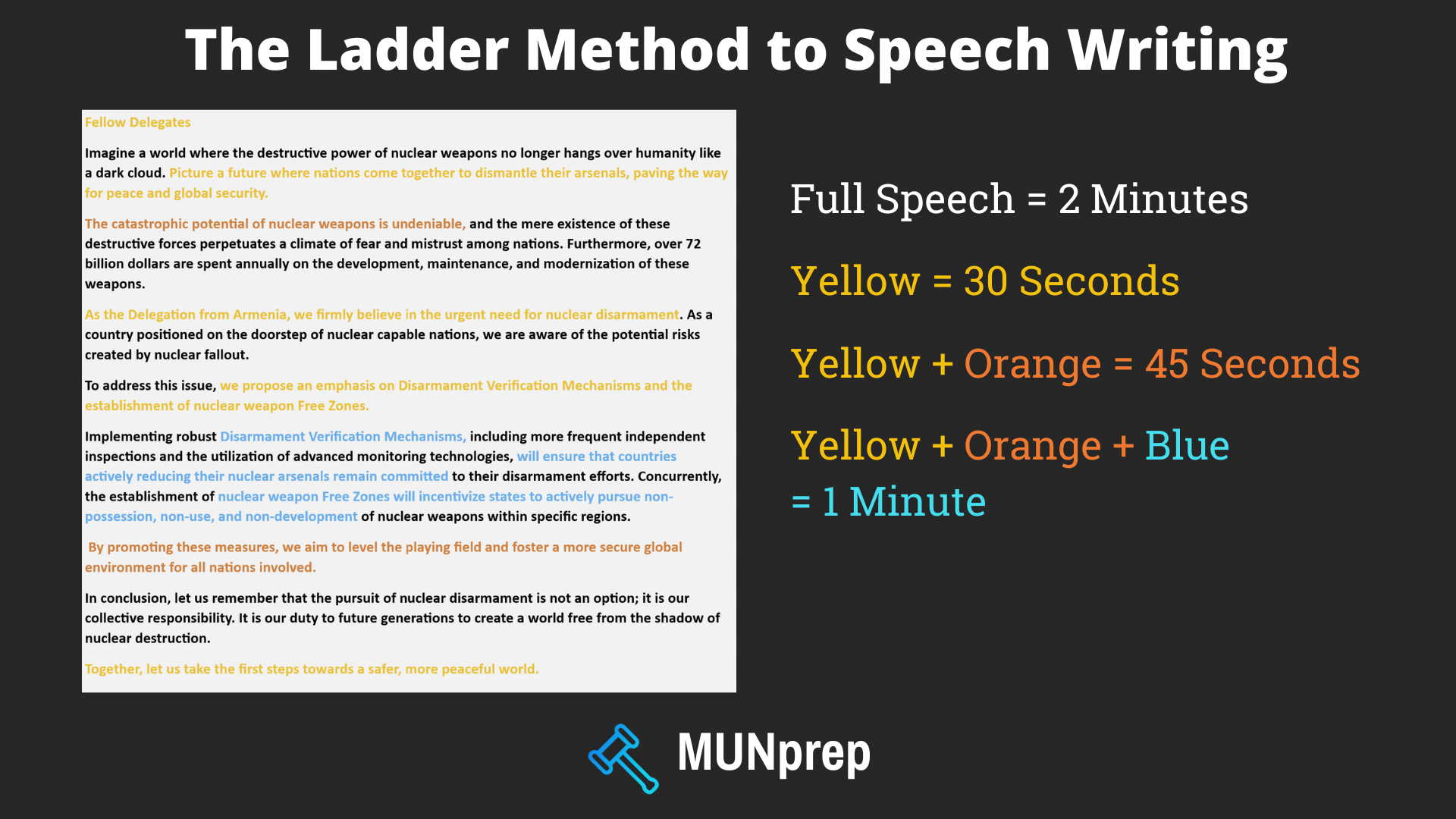
Important Reminders
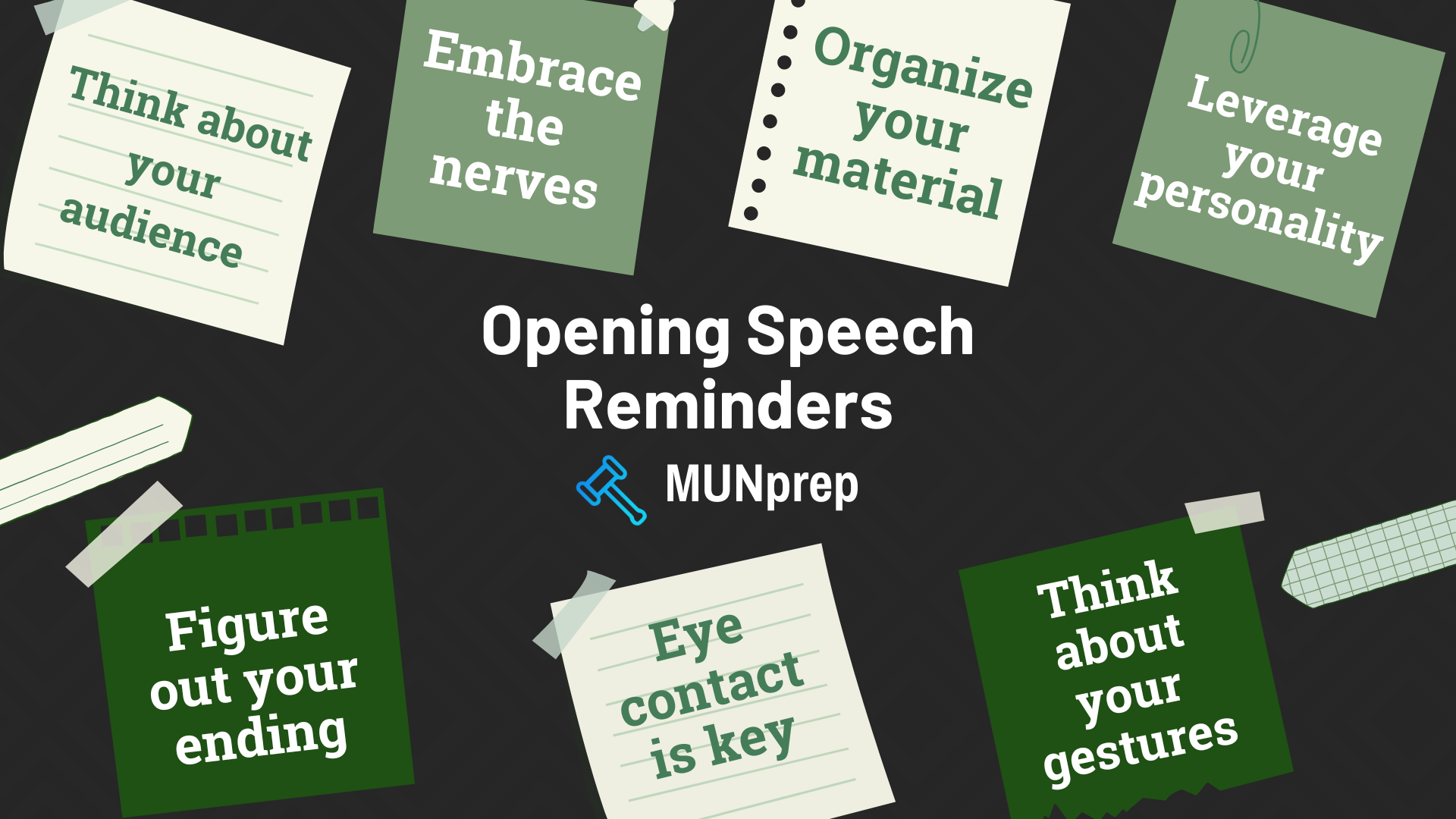
Here are a few things you should keep in mind for your next Model UN opening speech:
- Prepare Multiple Speeches - If your committee has multiple topics, you might have to prepare multiple opening speeches – 1 to argue for the topic you would like discussed first, and then an opening speech for each individual topic depending on which was chosen.
- Embrace the nerves – the idea of speaking in front of a room of people is scary to anybody, but that’s okay. It can help you to prepare more thoroughly and get ready to make an even higher quality opening speech.
- Leverage your personality – Embrace your personality and what makes you who you are, you want delegates to trust you and authenticity is the best way to do that. It will help them to feel more comfortable approaching you
- Finish Strong – let’s face it, even if you had a 10-minute choreographed dance routine, some of the members of your committee are going to drift off. Give a final punchy point, a quick call to action and let something stick in their head.
- Eye contact is key – let people know that you’re speaking to them, with a prepared speech it can be easy to drift back off, but you have to make sure that you keep your readers engaged for as long as you can.
- Include your Delegation Name – Mention the country/person you’re representing a few times so committee members know who they should speak to if they like what you said.
Up Next
That's everything you need to know for an awesome opening speech!
We wish you the best of luck. Up next, we'll walk you through building your binder for a MUN conference and explain how an actual MUN conference normally progresses.
See you there!
